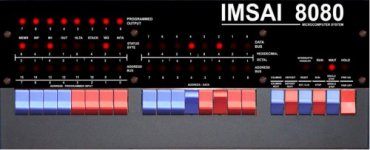I've recently gotten interested in older tech, from Walkmans to Atari, and I thought it would be interesting to own a vintage computer. However, I know these old machines can be expensive, requiring not only the computer itself but disk drives, tape drives, a monitor, and etc. to operate. I also don't have altogether that much room in my dorm room, so I started thinking about getting a portable PC. This led me to looking at the TRS-80 Model 100 from 1983. It has a good keyboard (something very important to me), a good battery life and, most importantly, doesn't require a monitor to use as it comes with a built-in LCD. Obviously there aren't a ton of games I could play on it, but the inclusion of basic on an authentic model intrigues me.
I don't know much about older computers, but it seems like this model would be good as a beginner's experience. Is there anything I should look out for when trying to buy a unit? I have my eyes on several, however they either cost hundreds of dollars and work or cost $50-$100 and might not work (untested or etc). Is there a good place other than E-Bay to find one?
TLDR: Looking to get TRS-80 Model 100 as first vintage computer. Any suggestions?
I don't know much about older computers, but it seems like this model would be good as a beginner's experience. Is there anything I should look out for when trying to buy a unit? I have my eyes on several, however they either cost hundreds of dollars and work or cost $50-$100 and might not work (untested or etc). Is there a good place other than E-Bay to find one?
TLDR: Looking to get TRS-80 Model 100 as first vintage computer. Any suggestions?

